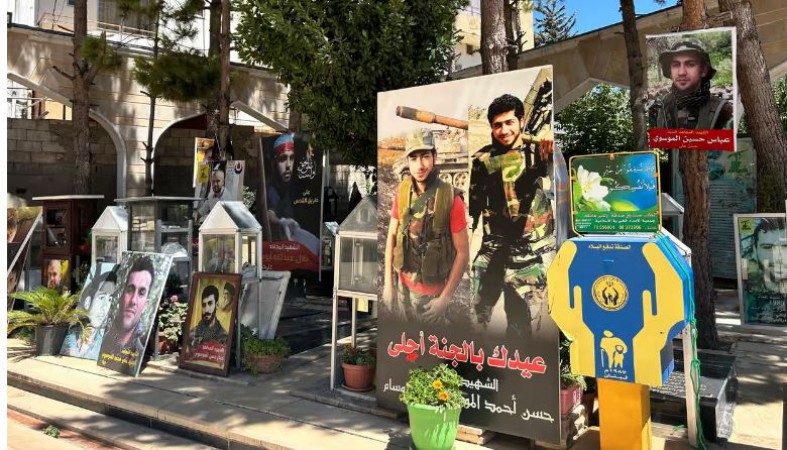
In the eastern Beqaa region of Lebanon, near the town of Nabi Chit, a group of men were recently seen clearing debris left by Israeli airstrikes. This marked the second raid in just three days. The explosions lit up the night sky, leaving the area covered in dust and gunpowder.
“They targeted Nabi Chit because it represents the heart of the resistance,” said Mohammed al-Moussawi, a staunch supporter of Hezbollah, the Shia militant group. Standing outside his damaged home, he recalled the devastating impact of the strikes. His four-year-old grandson, Hussain, was among the 20 injured, having suffered cuts from shattered glass. "At his young age, he already understands that Israel is the enemy," Moussawi remarked.
While Israeli Defense Forces (IDF) refrained from commenting on the casualties, they previously confirmed targeting a weapons depot in the area. Hezbollah, local authorities, and witnesses, however, maintain that civilian homes were also directly hit.
Historically, southern Lebanese villages have borne the brunt of Israeli fire, but the recent strikes on the Beqaa indicate a possible escalation toward Lebanon’s eastern regions. Known for its fertile lands and historic landmarks, the Beqaa valley now plays a critical role in the ongoing conflict.
The valley, often referred to as the "reservoir of the resistance," has long been a strategic corridor connecting Hezbollah to allies in Syria, Iraq, and Iran. It is also the birthplace of Hezbollah and several of its leaders. The valley hosted Hezbollah’s first training camp, supporting operations against Israeli forces until their withdrawal in 2000. Even in the 2006 conflict, the Beqaa faced Israeli bombardments aimed at severing supply lines.
In a recent speech, Hezbollah's leader, Hassan Nasrallah, confirmed that the Beqaa valley was used as a launch site for drones targeting Israel, a move seen as retaliation for the assassination of a senior Hezbollah commander. Nasrallah emphasized that while the group seeks peace, it is prepared to defend itself if war is imposed.
Hezbollah’s arsenal, primarily supplied by Iran, remains substantial with an estimated 150,000 rockets and missiles. Although the group has evolved from its insurgent roots into a major political force in Shia-majority areas, some still mistakenly view it as merely an Iranian proxy. Local leaders argue that Hezbollah makes decisions independently, in consultation with its allies, including Iran.
Despite being designated a terrorist organization by several countries, Hezbollah continues to maintain strong support in regions like the Beqaa. For many in Nabi Chit, the group's resistance against Israeli occupation is a deeply personal cause, intertwined with both religion and history. The region’s tribes, which have resisted foreign invaders for centuries, view Israel as a colonial force.
In return for the tribes' loyalty, Hezbollah draws officials and members of parliament from their ranks and allows local economic activities, such as cannabis cultivation, despite it being against the group's ideology. This complex relationship between the tribes and Hezbollah ensures a unified stance when it comes to defending Lebanon against external threats.
More To Read:
Netanyahu Faces Global Pressure as Hostages' Deaths Intensify Gaza Conflict
Israel and Hezbollah Exchange Fire, Avoiding Widespread Conflict
Israel Launches Preemptive Strike Against Hezbollah Targets in Lebanon Amid Escalating Tensions